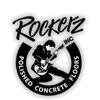
Wagner Meters announces the update to AS 2455.1 (Textile floor coverings – Installation practice – General) allowing the use of the in-situ relative humidity (RH) probes to test the moisture condition of concrete subfloors below the surface. The nationwide Australian standard was approved on April 15, 2019, by the members of the TX-009 Joint Technical Committee on behalf of the Council of Standards Australia.
The Australian Standard AS 2455.2 (Textile floor coverings – Installation practice – Carpet tiles), which specifies the requirements for the installation of carpet tiles, defers to AS 2455.1 for standards on how to prepare a floor for secure installation.
Thus, in situ RH testing now joins the hood test, as one of only two test methods accepted for concrete testing during floor preparation.
Use of the in situ RH test in Southern Hemisphere Pacific Rim countries accelerated in the 1980s when a New Zealand trade association provided its members with the Edney gauge hygrometer. Later, research in Sweden in the 1990s identified the proper depth at which an RH probe could yield the most accurate indication of the moisture condition of the concrete when the flooring will be installed. This and other bodies of research formed the foundation of the American ASTM F2170 Standard (Standard Test Method for Determining RH in Concrete Floor Slabs Using in situ Probes).
The hood test, withdrawn from American ASTM standards in December of 2014, measures moisture vapor emissions from the slab surface, the hood test was proven unreliable from a preliminary Precision and Bias conducted in 2013 by ASTM members.
In situ RH probes, which are inserted into the slab to get readings below the surface, are now stipulated to get an accurate measure of concrete moisture condition in compliance with Australian AS 2455.1 and AS 2455.2 standards.
The Rapid RH® Concrete RH Testfrom Wagner Meters provides accurate concrete moisture readings quickly and easily. The new Rapid RH L6 system simplifies the process even more while also adding the reliability and freedom of wireless data transmission for superior data integrity.
Don Considine, of IKW Consulting Groupand member of the AS/NZS 2455, AS/NZS 3733 TX-009 Textile Standards Committee and AS 1884 PL-015 Resilient Standards Committee, commented on his preference for using Rapid RH, “I started using the Rapid RH sensors around 10 years ago for concrete moisture testing because they’re easier to use and more robust. Also, after equilibration in the test hole for at least 24 hours (as per ASTM F2170), it only takes 3 seconds to take a reading. The DataMaster™ (L6) app then takes all the information from the sensor and places it on my iPhone, which then allows me to send it as a spreadsheet to my laptop. Over the years, I’ve always used Rapid RH sensors and found them good, easy, and reliable to use.”





























